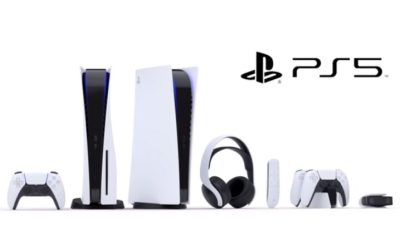With technology, increased productivity goals, faster internet, and more devices, we’ve created a need for speed wherever we go. We’re used to getting results instantaneously and expect our devices to keep up with our requests as we multi-task our way through life. Computer processors and their clock speed are two features we most commonly associate with high-performing, fast technology.
What is a PC processor and what does it do?
A central processing unit, or CPU, is a piece of hardware that enables your computer to interact with all of the applications and programs installed. A CPU interprets the program’s instructions and creates the output that you interface with when you’re using a computer.
A processor is made up of hardware that works together to deliver information, allowing your computer to complete the tasks that you request when you open an application or make changes to a file. Whether it processes quickly or painfully slowly can make a big impact on your computing experience.
Processor cores and clock speeds determine how much information can be received at a time, and how quickly that information can be processed on your computer. The speed at which your computer’s cores and clock speed work together is considered its processing speed.
What is a processor core?
Processor cores are individual processing units within the computer’s central processing unit (CPU). The processor core receives instructions from a single computing task, working with the clock speed to quickly process this information and temporarily store it in the Random Access Memory (RAM). Permanent information is saved to your hard drive when you request it.
Most computers now have multiple processor cores that enable your computer to complete multiple tasks at once. Having the ability to run numerous programs and request multiple tasks like making edits to a document, while watching a video, while opening a new program, is made possible with multiple processor core units.
What is clock speed?
A computer’s processor clock speed determines how quickly the central processing unit (CPU) can retrieve and interpret instructions. This helps your computer complete more tasks by getting them done faster.
Clock speeds are measured in gigahertz (GHz), with a higher number equating to higher clock speed. Multi-core processors were developed to help CPUs run faster as it became more difficult to increase clock speed.
Faster clock speeds mean that you’ll see tasks ordered from your CPU completed quicker, making your experience seamless and reducing the time you wait to interface with your favorite applications and programs.
Choose a computer that’s right for you
Most individuals know what their computer usage looks like; either you’re a gamer or not, you use your computer daily or you don’t. Knowing this information about your own habits makes choosing a processor easier.
If you’re running a lot of applications at once or playing complex games, you’ll likely need a 4 or even 8 core processor. If you’re just looking for a computer to get basic tasks done efficiently, a dual-core processor will probably work for your needs.
For CPU intensive computing like video editing or gaming, you’ll want a higher clock speed close to 4.0 GHz, while basic computing needs don’t require such an advanced clock speed.
Although processor cores and speed are both important, the CPU isn’t the only thing to consider when buying a computer. You’ll also want to think about what computer fits into your lifestyle.


